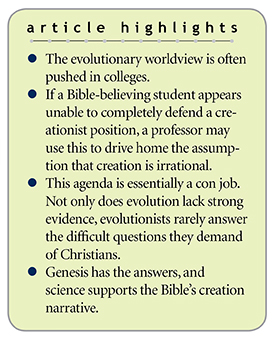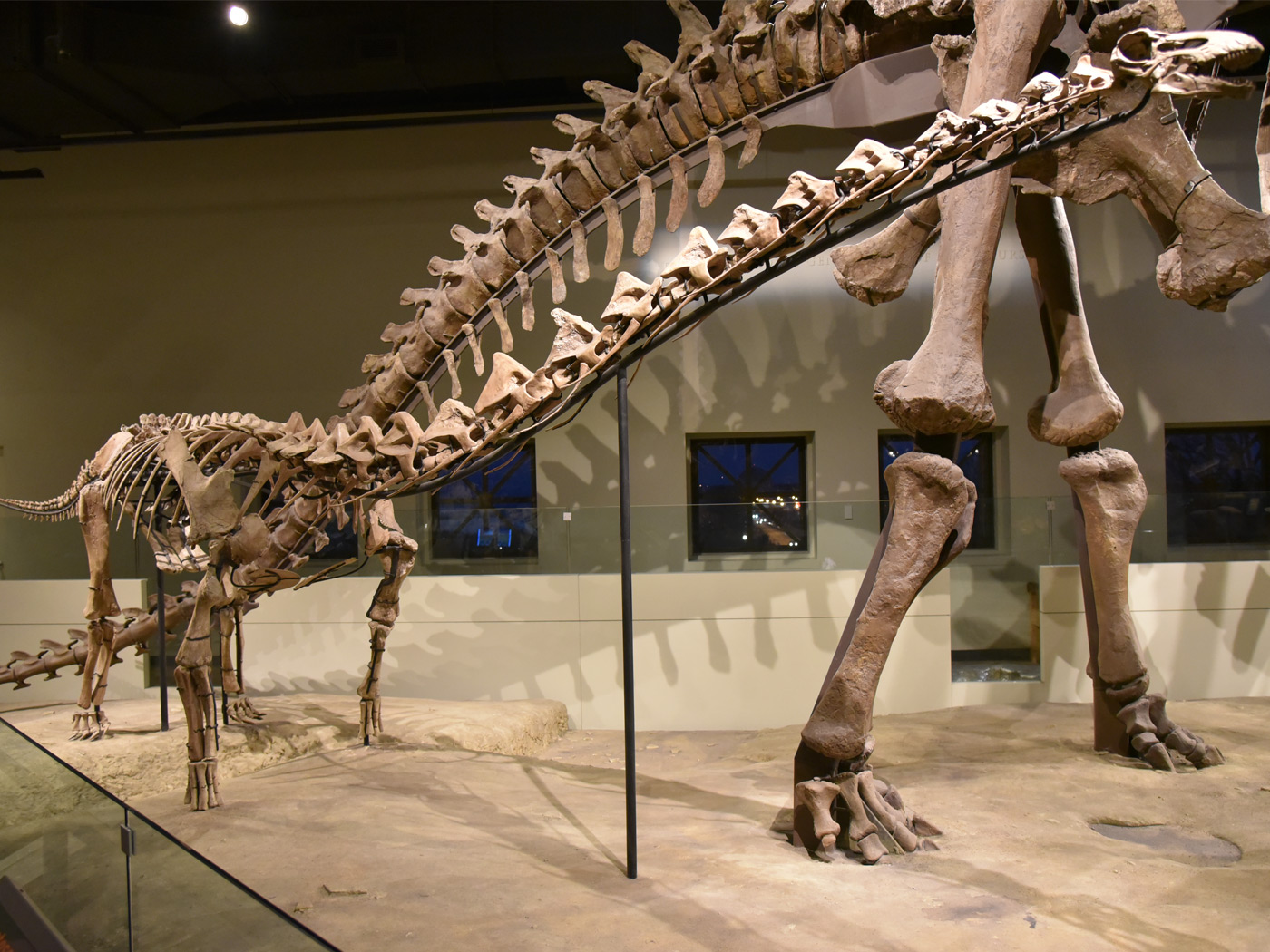 Many Christian students in secular universities can relate to this scenario: An evolutionist college professor is doing his best to convince his class that biblical creation is absurd. To this end, he peppers students with challenging questions: How can you see distant starlight in a young universe? If there was a global flood, where did all the water come from? Where did it go?
Many Christian students in secular universities can relate to this scenario: An evolutionist college professor is doing his best to convince his class that biblical creation is absurd. To this end, he peppers students with challenging questions: How can you see distant starlight in a young universe? If there was a global flood, where did all the water come from? Where did it go?
One of the unspoken assumptions behind this barrage of questions is that you shouldn’t hold a particular worldview unless you know the answers to all possible objections. If a student can’t answer on the spot every objection the instructor throws out, it’s seen as evidence that biblical creation is inherently irrational.
However, this is an intellectual con job. Knowing the answers to all possible questions would require perfect knowledge, which none of us possesses. If one follows this logic to its natural conclusion, it means that no one—evolutionist or creationist—is allowed to hold any kind of worldview! But how can you live your life without some kind of belief system? How can you function if you can’t trust the information coming from your senses? And why even bother to do science or anything else if you think the world is an illusion?1
Of course, evolutionist professors who challenge biblical creation don’t hold themselves to the same standard they impose on their Christian students. They insist that living things somehow arose from non-living chemicals, yet they have no idea how this happened.2,3 Despite this enormous unanswered question at the very foundation of their belief system, you can be sure evolutionist academics don’t consider their worldview to be irrational.
Unfortunately, many Christians also won’t consider biblical creation unless they get all the questions answered ahead of time. This “wait and see” approach results from a lack of faith in God’s Word. Furthermore, although it may seem intellectual, the approach has a huge practical problem. Our limited knowledge makes it impossible for any of us to answer all questions up front.
Actually, creation scientists have excellent reasons for their “bias” in favor of biblical creation. There is zero scientific evidence that life can or ever did arise from non-living chemicals. Evolutionists acknowledge that living things appear designed, although they vehemently deny this is the case.4 The billions of fossils found in water-deposited rock layers all over the world are exactly what one would expect from the global Flood described in Genesis 6–9, as are the hundreds of traditions and stories of this catastrophic event in cultures throughout the world.5,6
Biblical creation makes far better sense of the big picture of Earth history than does the evolutionary story. Creation scientists have already answered many questions and objections simply by taking the Bible’s narrative at face value. Yes, questions remain, but we’ll never correctly answer them by starting from a flawed evolutionary premise. Those who accept evolutionary ideas should quit leaning on their own understanding (Proverbs 3:5-6) and instead trust the words of the perfectly truthful, all-knowing, all-powerful Creator. Genesis really does have the answers.
References
- For a more detailed discussion of this topic, see Lisle, J. 2011. The Ultimate Proof of Creation. Green Forest, AR: Master Books.
- Horgan, J. Pssst! Don’t tell the creationists, but scientists don’t have a clue how life began. Scientific American. Posted on blogs.scientificamerica.com February 28, 2011, accessed July 29, 2019.
- Esson, A. $5 Million Tech Prize Seeks Answer to Origin of Life. Front Line Genomics. Posted on frontlinegenomics.com March 1, 2018, accessed August 1, 2019.
- Guliuzza. R. 2011. Evaluating Real vs. Apparent Design. Acts & Facts. 40 (1): 10-11.
- Morris, J. 2012. The Global Flood. Dallas, TX: Institute for Creation Research.
- Morris, J. 2014. Traditions of a Global Flood. Acts & Facts. 43 (11): 15.
* Dr. Jake Hebert is Research Associate at the Institute for Creation Research and earned his Ph.D. in physics from the University of Texas at Dallas.





















